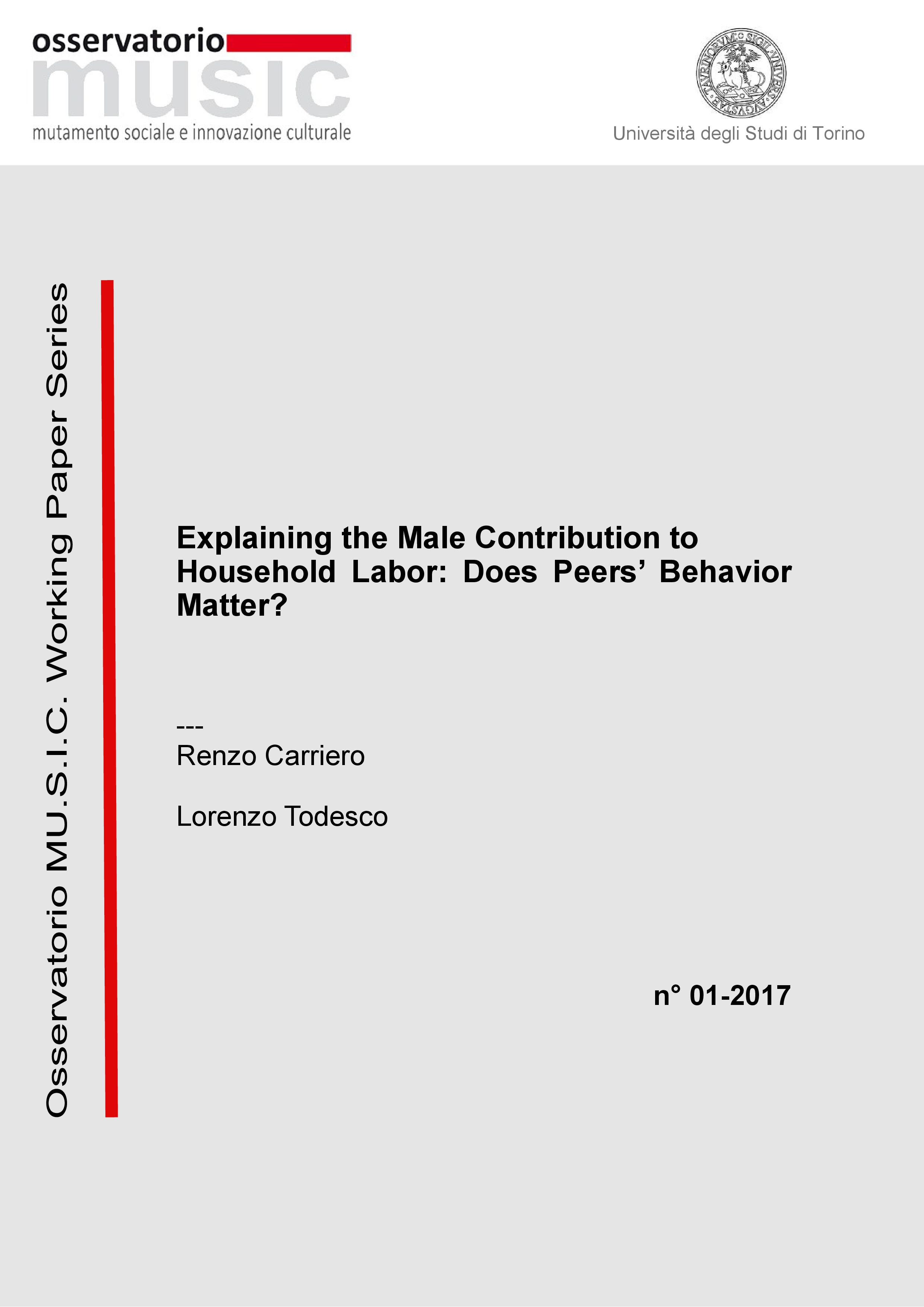Explaining the Male Contribution to Household Labor: Does Peers’ Behavior Matter?
Abstract
Notwithstanding a large strand of research over the last forty years, the gender division of household labor still remains a puzzle for social scientists. In this article, we concentrate on men’s behavior because it has revealed to be particularly resistant to change: the movement toward equality in the division of household labor, occurred during the last decades, was mostly due to changes in women’s behaviors rather than men’s. To understand why the pace of male change has been so slow, we focus on a factor that has never been considered in the division of household labor: the role of peers’ behavior. At the theoretical level, we address the problem within the framework of the diffusion of social innovations, like an egalitarian division of household labor is. At the methodological level, we introduce an experimental vignette design embedded in a survey. In this way, we deal with endogeneity issues that are typical in the estimation of peer effects. By showing randomized versions of the same story where peers’ behavior is manipulated, we assess, through respondents’ judgments, the likelihood that men’s household labor changes as a consequence of peers’ domestic behavior. Our findings show that peers count in pushing men to do more housework and childcare. However, their effect is constrained by other characteristics of the egalitarian division of household labor.




